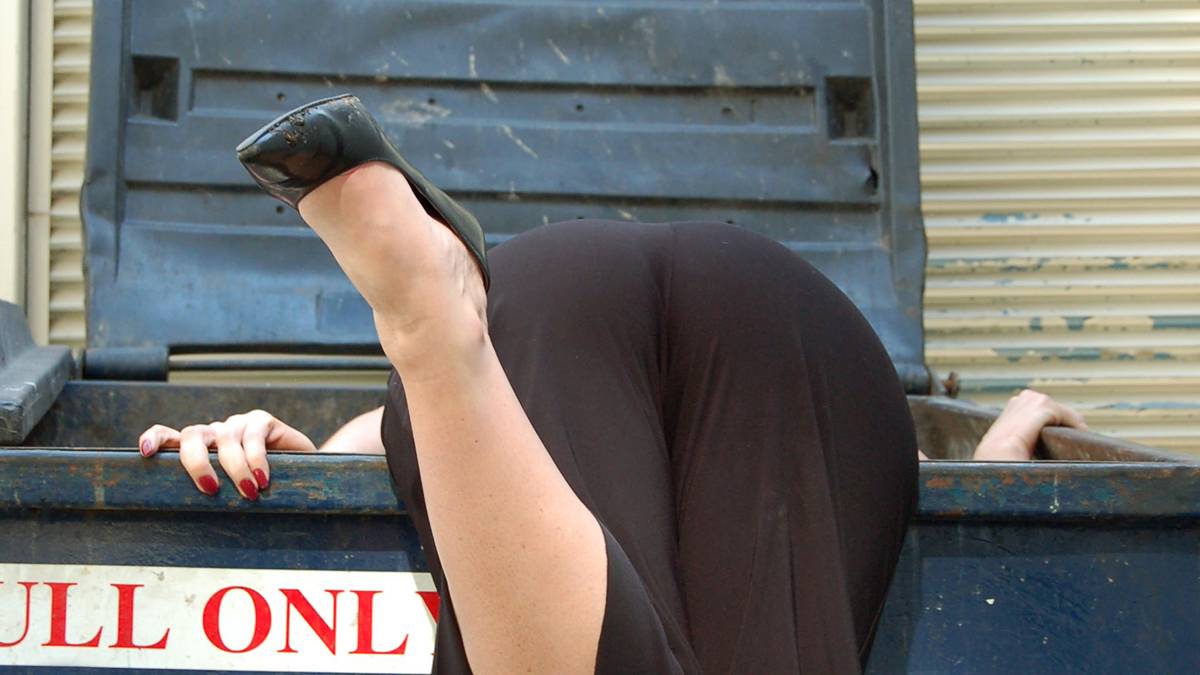Health Check: ASX healthcare stocks are a bargain says broker

Never mind the rotting fish heads! There are plenty of bargain healthcare stocks in that dumpster, so dive away. Pic: Getty Images
- Broker Wilsons says healthcare stocks are trading on close to two-decade relative lows, despite “enduring structural tailwinds”
- Curvebeam AI shares soar up to 42% on Chinese imaging push
- Well, oil be blowed: CSL strikes a Saudi Arabian vaccine deal
The ASX health care sector is a bargain after five years of underperformance, according to broker Wilsons.
In a report, the firm points to “compelling relative valuations”, given the sector’s decline from 2020 peak levels.
The firm notes the ASX 200 health stocks are trading at an average price-earnings (PE) multiple of 23.6 times.
This is a “material discount” to the long-term average and close to a 20-year low relative to the ASX 200 and all industrials indices.
Relative to historic valuations, stocks trading on heavy PE discounts include the besieged CSL (ASX:CSL), ResMed (ASX:RMD) , Cochlear (ASX:COH) , Ramsay Health Care (ASX:RHC) and Sonic Healthcare (ASX:SHL).
The cheapest, Clinuvel Pharmaceuticals (ASX:CUV) trades on a current PE of 15 times, compared with the historic norm of 34 times.
The key ‘expensive’ outlier is nursing home operator Regis Healthcare (ASX:REG), which trades on a PE of about 32 times compared with 27 times historically.
Wilsons expects the sector’s earnings per share to grow at a compound annual 14% over the next three years. This is twice the rate expected for the broader ASX 200 index.
The firm says the sector contains “a number of highly profitable, global market leaders benefiting from enduring structural tailwinds”.
These include ageing populations, rising chronic disease prevalence, and medical product innovation.
Wilsons prefers Resmed and Telix Pharmaceuticals (ASX:TLX) on their “bottom up” metrics.
This does not refer to a wild pub crawl, but the ability of these companies to expand their valuations by actually growing earnings.
After Biden time, Curvebeam is China bound
CurveBeam AI (ASX:CVB) shares are on a tear after the point-of-care medical imaging company struck a deal to expand into China.
The company has signed a compact with Shandong WeiYing Intelligent Medical Technology, which supplies orthopaedic implants and surgical robotics in joint venture with other entities.
The deal aims to accelerate commercialisation of Curvebeam’s AI-enabled wight bearing computed tomography (WBCT).
WBCT monitors orthopaedic and bone health conditions.
Overlaid on that, artificial intelligence creates high-quality CT images.
For instance, granular assessment of a patient’s bone mineral density could help to appraise the risk of a fracture.
Curvebeam enjoyed the advocacy of then US President Joe Biden, who underwent WBCT monitoring of a foot fracture, incurred while playing with his dogs.
The deal involves the Chinese parties making an equity investment of up to $10 million in Curvebeam. Of that, $6 million is subject to milestones.
The investment is at 40.5 cents a share – four times the current value.
Over a ten-year period, Curvebeam receives upfront, milestones and royalties on sales.
Curvebeam shares listed in August 2023 after a $25 million raising at 48 cents apiece.
So, there’s a bit of catch-up to do.
4D Medical quells the grumblers
There’s nothing like an 260% year-on-year share gain to ameliorate investor grumblings that result in remuneration report ‘strikes’.
At its AGM last year, lung imaging house 4D Medical (ASX:4DX) incurred a first remuneration report ‘strike’. More than 30% of voting holders opposed the motion, well beyond the 25% threshold.
Ahead of its noon AGM today, 4D said 10.5% of participating holders had voted no, with 68% in favour.
4D Medical shares took off in late July after the company disclosed a $10 million investment from radiology imaging giant ProMedicus (ASX:PME)
In early September the US Food & Drug Administration (FDA) approved 4D’s CT:VQ, the world’s “first and only non-contrast, ventilation perfusion imaging solution.”
Days later, 4D won public reimbursement for the tests.
As of September 30, 4D had cash of $33.5 million, with the company likely to bank another $30 million by the end of December.
This is from options that are “comfortably in the money.”
Island awaits FDA ‘animal’ decree
Anti-infectives house Island Pharmaceuticals (ASX:ILA) hopes to hear back from the FDA on a key decision by November 12 – only two weeks away.
The company is seeking a declaration on whether it can avail of the FDA’s so-called Animal Rule to test its acquired compound Galidesivir, for the devastating Marburg disease.
As with Ebola, Marburg severe and often fatal hemorrhagic fever transmitted through direct contact with blood or body fluids or via contaminated surfaces.
The Animal Rule can apply to diseases that are too dangerous to be tested on humans … such as the aforementioned nasties.
Previous primate testing shows a 94% survival in primates infected with Marburg and then administered Galidesivir. All the placebo primates perished.
For Ebola, 100% of the beasts survived, after being given the compound 48 hours post infection.
Island’s quarterly report shows a cash balance of $6.9 million, boosted by two shareholders exercising $1.1 million of options.
The company spent $820,000 in the stanza.
Shot in the arm for the Saudis
CSL’s latest vaccine news won’t move the dial in terms of flagging investor sentiment, but its MSAGA push is worth reporting anyway.
MSAGA? Make Saudi Arabia Great Again, silly.
CSL’s vaccines arm Seqirus has signed a memorandum of understanding with the oil-rich kingdom’s Ministry of Health to “localise” vaccine manufacturing.
CSL will work with a prominent Saudi company, Vaccine Industrial Company, to provide “its innovative cell-based seasonal and pandemic influenza vaccines.”
The agreement will foster pre-pandemic vaccine stockpiles, “helping to elevate Saudi Arabia’s preparedness in case of an influenza pandemic.”
One would have thought the flu was low on the list for the sun-drenched nation, but that’s not the case.
The lurgy is responsible for up to 6.3 million mild to moderate cases, 17,600 hospitalisations, and 4,440 deaths annually.
The high degree of international travel doesn’t help, nor does large-scale population movements, such as the Hajj (the annual Mecca pilgrimage).
Related Topics

UNLOCK INSIGHTS
Discover the untold stories of emerging ASX stocks.
Daily news and expert analysis, it's free to subscribe.
By proceeding, you confirm you understand that we handle personal information in accordance with our Privacy Policy.








